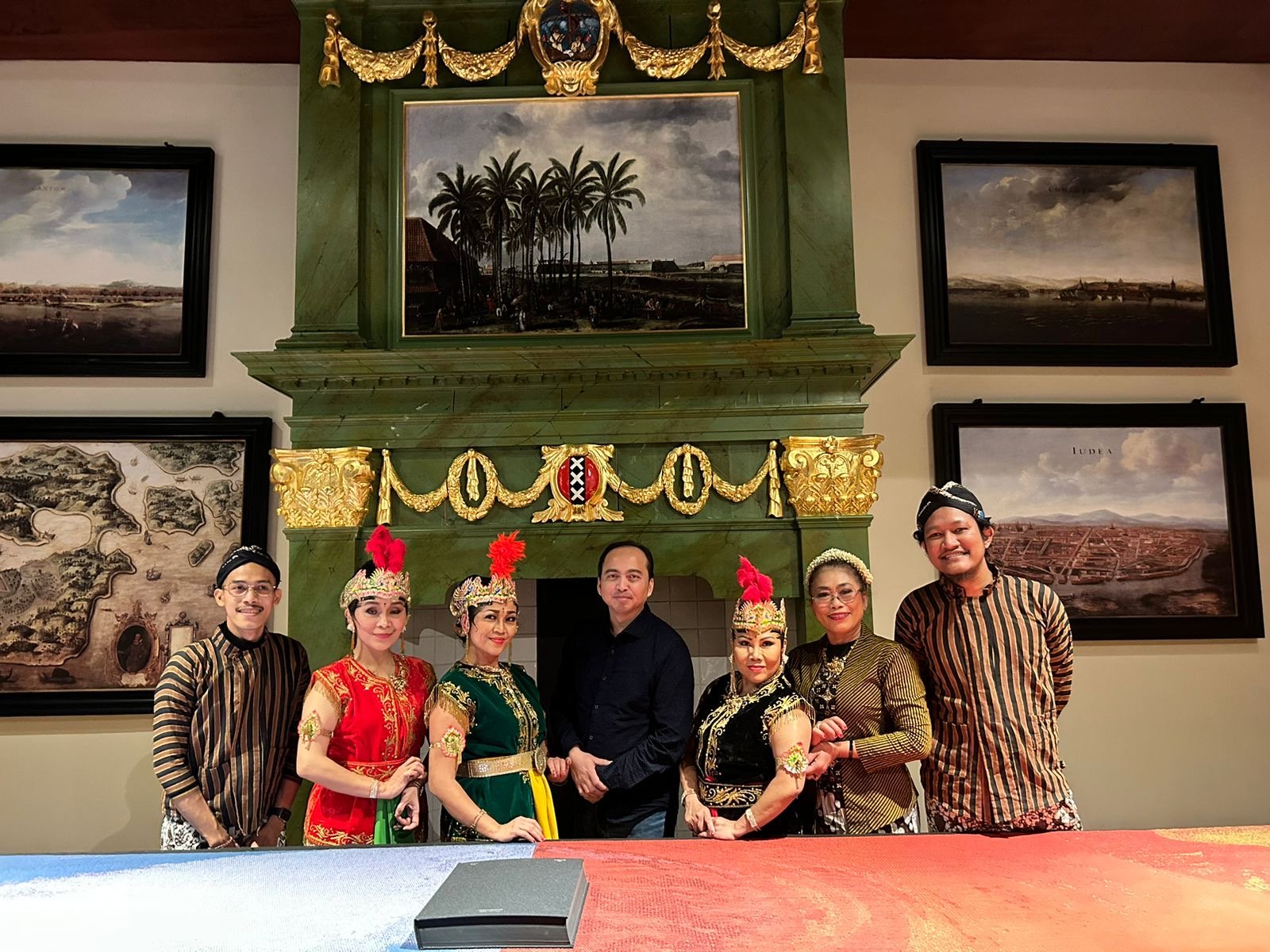Javanese Dance Ritual at VOC-Hall University of Amsterdam

Brian Trinanda, the Chairman of Festival Islam Kepulauan, was honored to be invited to participate in the agenda and perform as a flute blower and singer during the ritual. The ritual was inspired from Golek Sri Rejeki dance, a form of classical Javanese dance repertoire from the palace tradition of the Sultanate of Surakarta. This dance is a form of loyalty from the people to their king. The Golek dance tells the story of a teenage girl who is dressing up and has the meaning of searching for identity. Three dancers representing body, soul, and spirit were accompanied by several people who brought spices as a symbol of the natural wealth of the archipelago as well as ‘tumpeng’ (yellow rice with side dishes) which is a typical Indonesian culinary dish that is usually available in many celebrations in Indonesia as a symbol of gratitude towards the Creator.
During the ritual, the lead dancer also sang the tembang pangkur. Tembang (song) pangkur is one part of the tembang macapat which is a classical song based on Javanese literature. This song describes the wisdom of human life which must avoid various desires and anger as a reflection of getting closer to God and leaving behind worldly pursuits. It is hoped that this ritual can become a reflection and space for cultural expression regarding what is happening in the world today. At a time when many countries are in conflict and prioritize their egos or interests, How should we, as humans, act to create peace and harmonious relationships between humans, the Creator, and the universe? The ritual were presented by seven Indonesian culture enthusiasts consisting of Indonesian expatriates in the Netherlands who come from different backgrounds ranging from students, entrepreneurs, and artists. They are Brian Trinanda K. Adi; Hadi Aktsar; Syafiih Kamil; Deby Subiyanti; Supiati Ngadelan; Vera Luvsing, and Weny W. Asmadi which was members of Stichting Peduli Seni Indonesia. They will also perform the similar theatrical dance, with more pronounced and complex artistic concept during The Festival Islam Kepulauan.
Festival Islam Kepulauan and the Celebration of Diversity
Festival Islam Kepulauan 2024, entittled “The Voices of Archipelago” aims to promote and present a friendly representation of Islam in Indonesia, embracing diversity and inclusivity, and to globally celebrate the intellectual, artistic, cultural, and religious richness of the Nusantara. The festival will be held on 1-20 May 2024 in several places, such as Bronbeek Museum, Arnhem; Indonesian House Amsterdam; De Broodfabriek Expo, Den Haag, and several other places in the Netherlands. The event is hosted by PCINU Belanda (The Special Branch of Nahdlatul Ulama in the Netherlands) and collaborates with Java Foundation, Bronbeek Museum, University van Amsterdam, and some other institutions from the Netherlands and Indonesia. There will be more than 5000 attendees expected to celebrate this event, with some agendas such as Panel Discussion/Interactive Dialogue, Art Exhibition, Art Performances, Movie festivals, Workshop, Food Bazaar, etc.
This festival encourages the general public to participate in the event regardless of their religions, races, beliefs, gender, sexual orientation, and nationalities to come together and reflect on the meaning of togetherness, inclusiveness, and tolerance